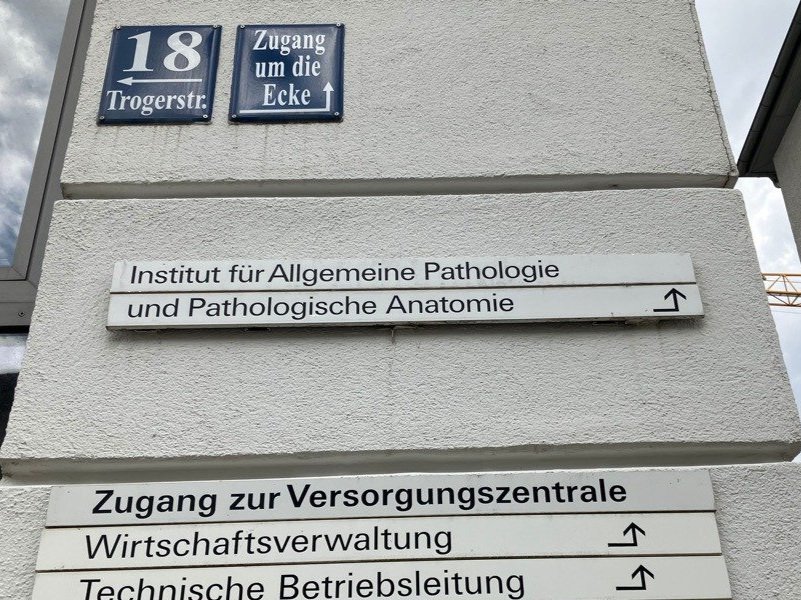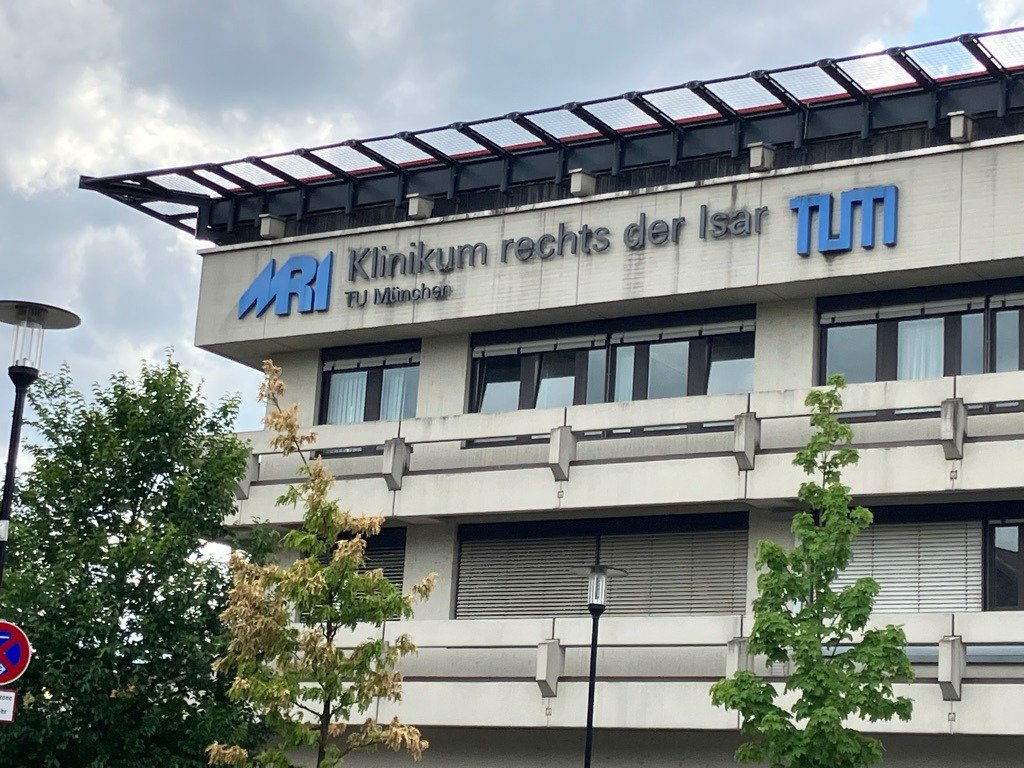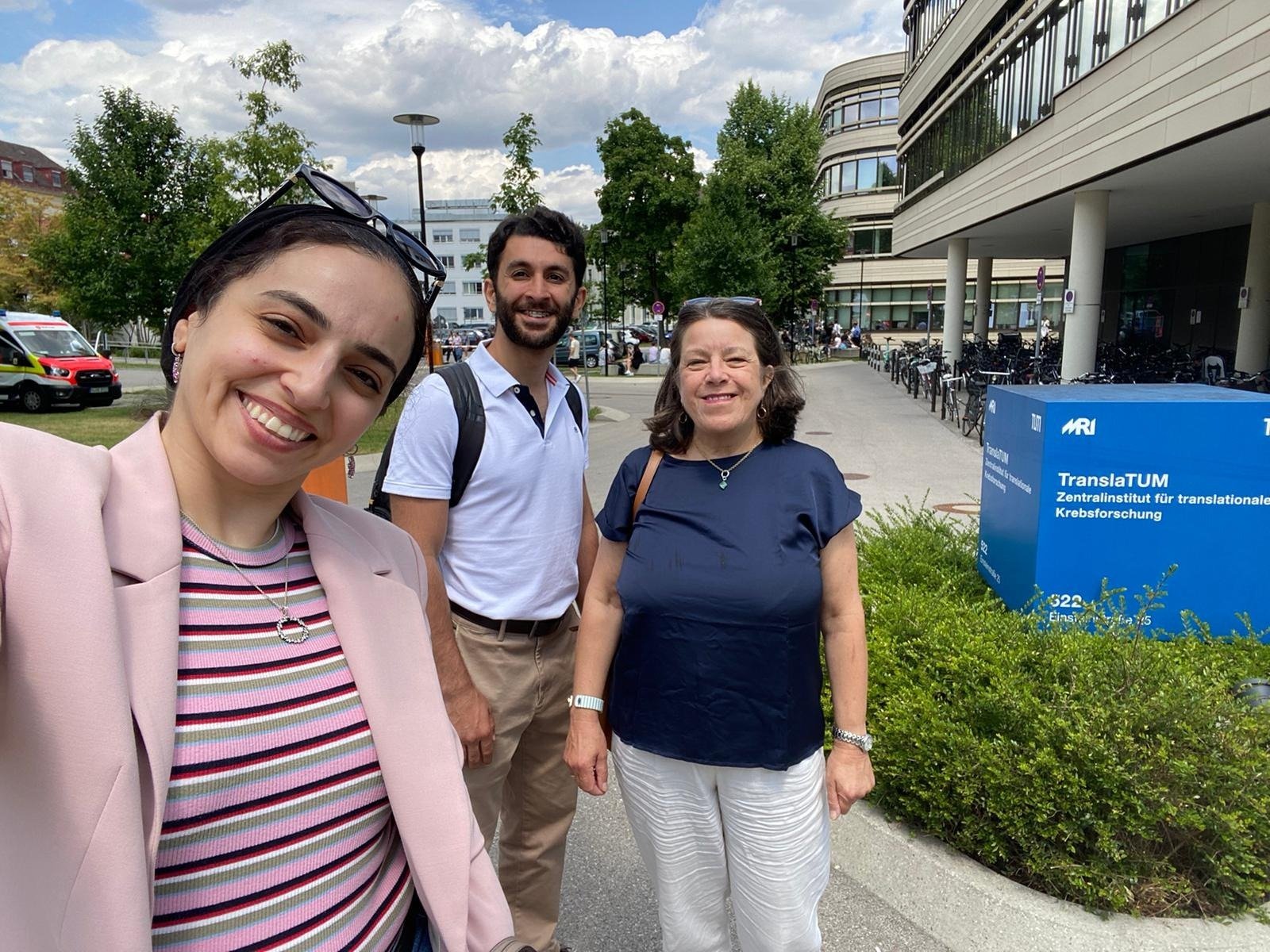Member of the Federal Parliament - Marlene Schönberger visits the European Campus Rottal-Inn
The European Campus Rottal-Inn is Bavaria's only completely English-speaking study location and is home to 1500 students from almost 100 countries. One particularly exciting research project is med4PAN, which aims to improve medical care in rural areas using digital technologies. One highlight of this project is the development of drone systems to deliver defibrillators to remote locations.
Ms. Marlene Schönberger, member of the German Parliament, visited the campus on Wednesday, 8th of May 2024 and gained valuable insights into this pioneering project. Special thanks go to Prof. Dr. Thomas Spittler, Anna Schmaus-Klughammer and Claudia Nikitsin for the informative tour and the presentation of the research work.
Image f.l.t.r: Prof. Dr. Thomas Spittler, Marlene Schönberger, Anna Schmaus-Klughammer and Claudia Nikitsin
News in brief: Deggendorf Institute of Technology celebrates Girls'Day and Boys'Day - opportunities for all
On Thursday, April 25, the Deggendorf Institute of Technology (THD) demonstrated that there are no gender-specific professions, apprenticeships or courses of study as part of the nationwide Girls'Day and Boys'Day. Over 360 girls and boys were warmly welcomed at the campus in Deggendorf and at the branch campuses. Under the motto “Here you come”, 220 girls explored the university's laboratories at the Deggendorf campus and tried their hand at engineering.
At the European Campus Rottal-Inn, a branch of the THD in Pfarrkirchen, 40 girls were given the opportunity to take a look behind the scenes at the university and experiment in the laboratories. Anna Schmaus-Klughammer presented the Med4Pan project and offered the participants exciting insights and valuable information.
Deggendorf Institute of Technology will continue to support events such as Girls' Day and Boys' Day in the future to show young people that all professional fields and fields of study are open to them.
Further information in the article from https://th-deg.de/de/Presseartikel?id=14631734
Image: Anna Schmaus-Klughammer Med4PAN presentation
CHILDREN'S UNIVERSITY AT ECRI: HEALTHCARE OF THE FUTURE
Flying robots and magic glasses: Healthcare of the future made child-friendly at ECRI Children's University
When children think of doctors, they usually have images of stethoscopes or clinical thermometers in their mind's eye. But the fact that drones and augmented reality glasses are also used in medicine seems like science fiction. At the next children's university at the European Campus Rottal-Inn (ECRI), interested children will find out what healthcare in rural areas could look like in the future. The lecture for participants aged eight and over will take place on Friday, 23rd of February 2024 at 5 pm.
"Flying robots and magic glasses: How they can help us when we're sick!" - Anna Schmaus-Klaughammer, research associate in the med4PAN research project, explains pioneering technologies in an easy-to-understand way: Drones that transport medical equipment to remote farms, or augmented reality glasses that allow medical specialists to examine patients remotely in real time.
The German-language lecture lasts around one hour and can be attended without pre-registration. Participants receive a children's university card when they attend the lecture and can look forward to a surprise after attending five lectures. Parents or accompanying persons are also very welcome. The regular children's university is organized by the MINT team at Deggendorf Institute of Technology. Further information on the children's university can be found online at www.th-deg.de/kinderuni.
Image (THD): At the regular children's university, scientific topics are taught in a child-friendly way.
This article originates from https://www.th-deg.de/de/Presseartikel?id=13140332
ADULT UNIVERSITY ON MEDICAL CARE IN RURAL AREAS
Drones and virtual reality - adult university on medical care in rural areas
Drones and virtual reality (VR) goggles are currently revolutionizing healthcare, especially in rural areas. The adult university at the European Campus Rottal-Inn (ECRI) on Tuesday, 28th of November 2023 will therefore focus on the topic of healthcare in rural areas. The lecture starts at 5 pm at the campus in Pfarrkirchen.
Under the title "Healthcare in rural areas - improvement with the help of drones and virtual reality (VR) glasses", Anna Schmaus-Klughammer, LLB (hons), will take participants on a journey into the digital revolution. She will focus in particular on the med4PAN research project and show how drones can be used to transport medical equipment quickly and efficiently to remote locations. Participants at the adult university will also learn about the benefits of VR glasses in medical care. Schmaus-Klughammer will provide insights into how specialists can use VR goggles to carry out remote patient examinations, train medical staff or monitor complex procedures in real time. Residents of rural areas in particular benefit from the use of this technology, giving them access to specialist knowledge and services without having to travel long distances.
The Adult University takes place at regular intervals and offers lectures from the various research areas of the ECRI. It is open to all interested parties. No previous knowledge or prior registration is required. Detailed information on the event is available online at www.th-deg.de/erwachsenenuni.
Image (THD): The Adult University with Anna Schmaus-Klughammer, LLB (hons) is all about medical care in rural areas.
This article originates from https://www.th-deg.de/de/Presseartikel?id=13140259
Schüffler Lab for Computational Pathology
Institut für Allgemeine Pathologie und Pathologische Anatomie der Technischen Universität München right next to Klinikum der Rechts der Isar
Visit on Thursday, 6th of June 2023
As part of our ongoing project med4PAN our project member Ilgar Guseinov met Prof. Dr. Schüffler from the Technische Universität München (TUM), in the annual conference for pathologists, called Deutsche Gesellschaft für Pathologie (106th), held in Leipzig last month June 2023. A few weeks after our project members Anna Schmaus-Klughammer, Somaia Abubaker and Ilgar Guseinov were privileged to meet with the professor who holds a Professorship for Computational Pathology at the Institut für Allgemeine Pathologie und Pathologische Anatomie der Technischen Universität München right next to Klinikum der Rechts der Isar. The intention of this meeting were further discussions on our ongoing project and the prospectives on future cooperation.
First, we had a tour of the pathology center and its departments. We had a look at the process of specimens’ preparation, and segmentation, as well as the prospective assessment through microscopes and the retrospective assessment through whole slide scanners. We discussed the overall workflow of pathology in this regard. The professor, who is specialized in computational pathology, showed us the processes which where they were able to digitalize. He mentioned important aspects for the appropriate integration of AI into the pathologist’s workflow, regulatory considerations, and the importance of validating AI tools by adequate studies. The department personnel continuously develop, apply, and validate new cancer detection, segmentation, and quantification models in digital histological slides.
We discussed several challenges the department encounters in the digitalization process and how those challenges can be tackled to achieve higher efficiency. These challenges accommodate legislative procedures, anonymization of data, acceptance, and adaptation by pathologists, as well as the imperative requirement for large cloud or hardware storage, and high internet speed. We pointed out our interest in a cooperation for using the 5G services for the enhancement of the technologies. Since medical services are usually time-sensitive, and software for data storage and processing whether in AI or other aspects of digital pathology needs a high-speed connection for effective delivery of services, we think that such integration of 5G in the department will have very promising results in terms of efficiency and effectiveness.
We also talked about our ongoing project in the use case on pathology and how our research can be efficiently applied in the university hospital in the next phase. We worked on discussing and shaping ideas that are deemed most suitable for the department. The overall visit was fruitful, as it gave a closer look at what is applied in the digital pathology laboratory. We are inspired by all the achievements seen in this digital pathology laboratory. We were also interested in parts that need further development and improvement to form the cornerstone component for the next phase of application in the med4PAN project. We look forward to our project’s next steps and the prospective partnership.



f.l.t.r.: Somaia Abu-Baker, Ilgar Guseinov, Anna Schmaus-Klughammer

Prof. Dr. Peter Schüffler
Making 5G a part of everyday life: Working together to create innovations for the connectivity of the future
Participants of the 5x5G networking event at Fritz Walter Stadium
Source: TU Kaiserslautern
The 5x5G networking event organized by the German Federal Ministry of Digital Affairs and Transport (BMDV) brought together some 160 experts in Kaiserslautern on June 14 and 15, 2022.
At the invitation of the BMDV, representatives of projects funded under the BMDV's 5G Innovation Program met at the Fritz Walter Stadium. With this funding program, the BMDV is encouraging 5G applications to be tested under real conditions: To this end, the technology's potential is being explored in six 5G research regions and in 50 5G implementation projects from research, industry and society.
At the networking event in Kaiserlautern, one of the six 5G research regions, the focus was on mutual learning: In presentations, workshops, and personal discussions, participants exchanged information, for example, on successes already achieved, common challenges, or problems and mistakes.
The focus was on the use of 5G in many different fields of application, such as mobility, agriculture, medicine and industry. The focus was on questions such as:
Where and for which applications are private, local or mobile 5G networks, so-called campus networks, useful?
Which end devices are suitable for which applications and what is the availability situation?
What are the special features of the different use cases and what can others learn from them?
med4PAN project members: Vito Klughammer, Anna Schmaus-Klughammer, Prof. Dr. -Ing. Thomas Spittler (from left to right)
Source: TU Kaiserslautern
The cross-project exchange also plays an important role in the further progress of the 5G innovation program. All this is being done with the aim of ensuring that the opportunities and possibilities of 5G mobile communications are exploited as widely as possible and to make Germany the lead market for 5G.
This article originates from https://bmdv.bund.de/SharedDocs/DE/Artikel/DG/5g-im-alltag.html






